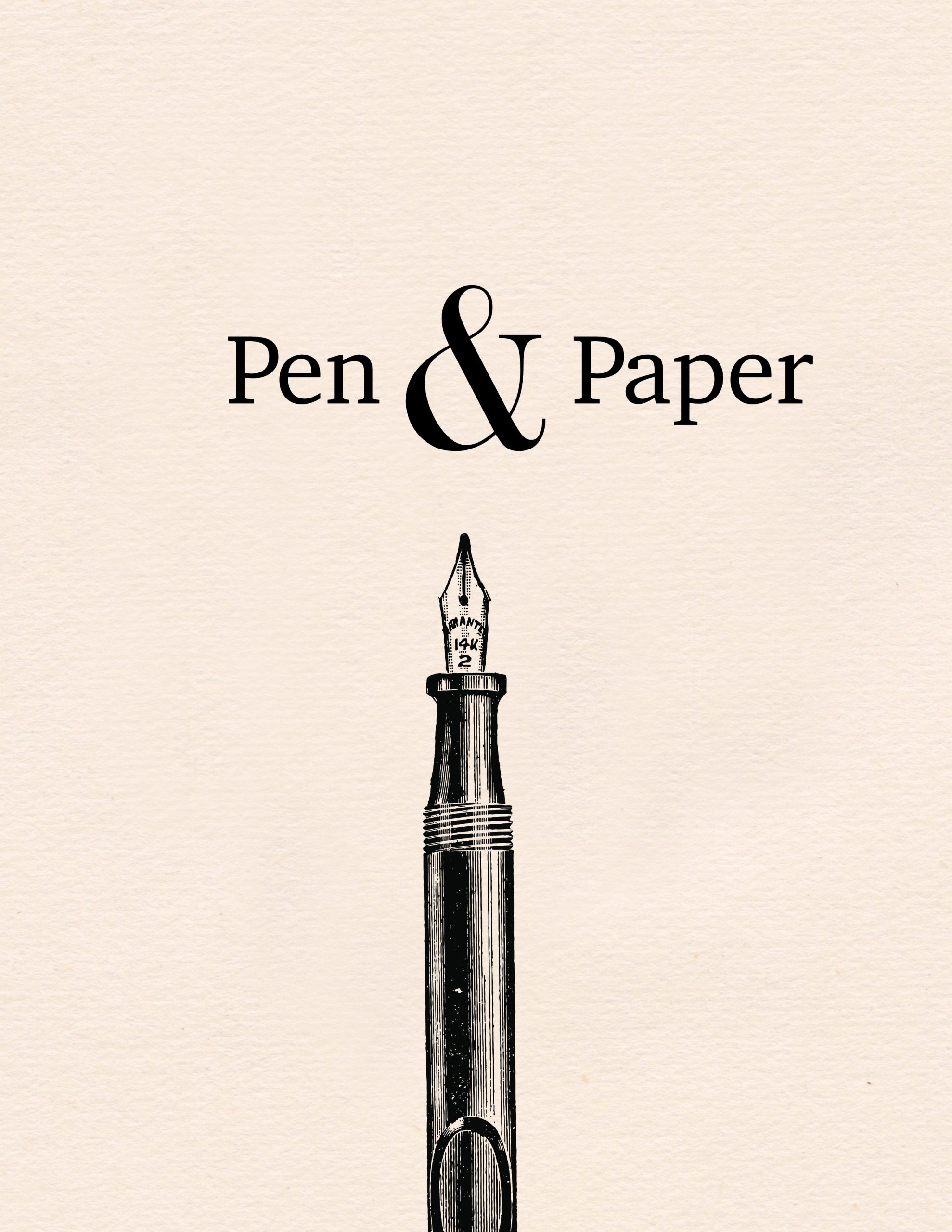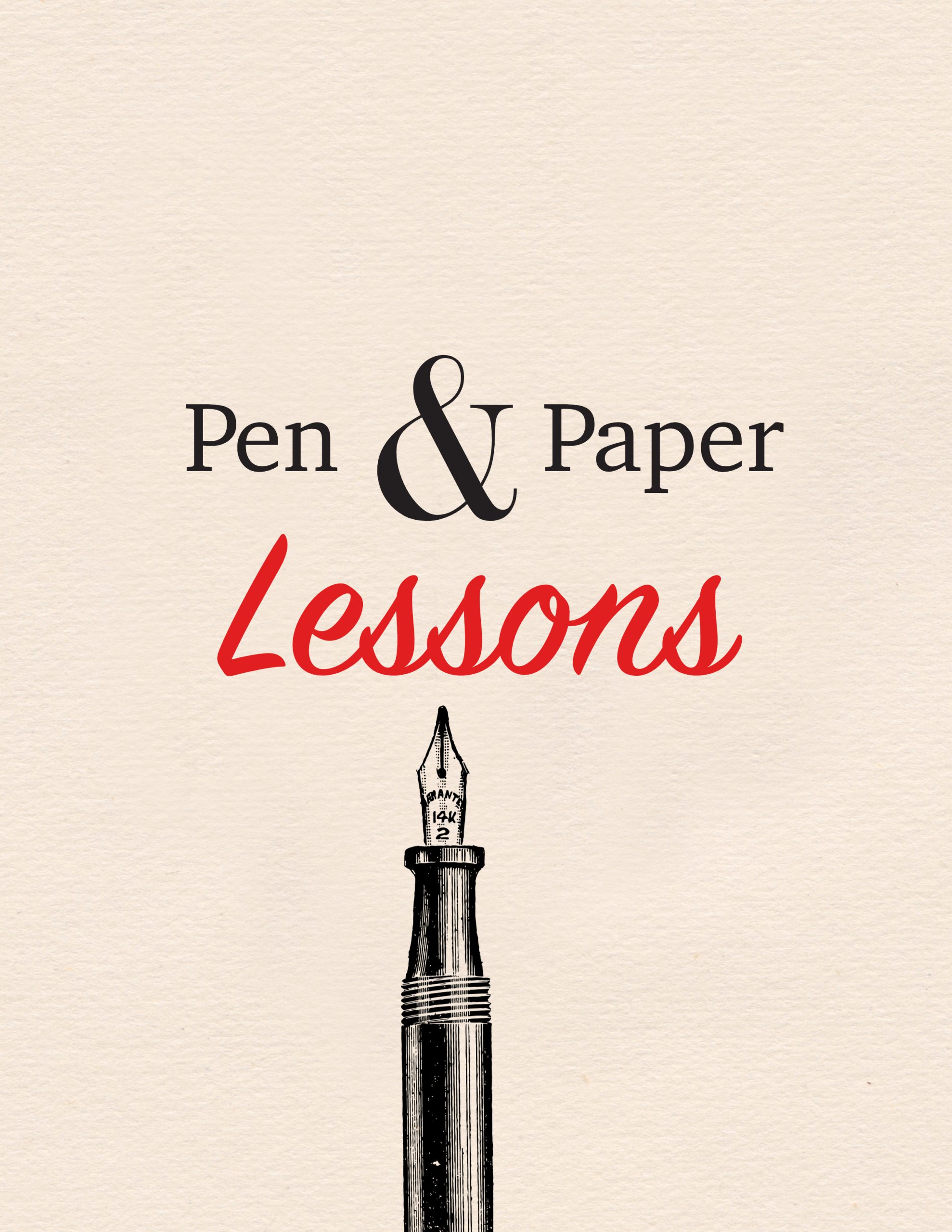
Welcome to Pen and Paper.
Do you have a story to tell?
Do you want to write something that people will read…and enjoy?
There is an element of craftsmanship to good writing.
Pen & Paper is a course in the craft of storytelling.
The cost for Pen & Paper is $55.00
_____
What makes for a great reading experience? When the words on the page create people that you consider to be friends, worlds that you would like to live in, and experiences that you can savor. Simply put…you want your literary offerings to be more than just books. If readers cannot (and do not) pick up your titles again and again, then you have fallen short of your goal – to provide more than just throwaway fiction. Your goal should be to offer your readers only the extraordinary.
Learn to write the extraordinary at Pen & Paper.
There are three ways to learn here at Pen & Paper.
Your choices are as follows:
- register for the course Pen & Paper ($55)
- take a private lesson in writing – see Lessons ($100)
- study the Études de Plume (free)
Music is the Metaphor
Music is a metaphor for many things here at Pen & Paper. Just as writers use metaphors to reach their audience, I use metaphors to teach mine.
I want you to know what I write and what I teach. I am going to use the metaphor of music to explain this. I want you to listen to two pieces of music. Each one represents a literary style. You will hear a clear difference between the two.
So, for the purpose of instruction, a question is in order.
Do you want to write this… (Note: This is your first assignment. I want you to listen to Tchaikovsky’s Piano Concerto No. 1. Pay close attention to the first three minutes of the concerto as I will reference the opening measures of the music within the course materials. Remember…there are no accidents in crime, writing, or teaching. There is a reason I chose this concerto and this particular recording of the concerto. It is only about 35 minutes long… and it is amazing. So listen and enjoy. If you are pressed for time, then at least listen to the first three minutes.)
Or this? (Note: I only want you to listen to a few measures of Schoenberg – just enough to get the gist of his music.)
Commercial Versus Literary Fiction
There is a stark contrast between the two YouTube videos. One video contains the music of Tchaikovsky and the other contains the music of Schoenberg.
Which do you prefer?
For the purposes of this course, Tchaikovsky represents good storytelling (commercial fiction) and Schoenberg represents literary fiction. What is the difference between commercial fiction and literary fiction? You can ask what is the difference between the two styles of music and you will have your answer.
Both Tchaikovsky and commercial fiction are read and enjoyed by a wide audience, while Schoenberg and literary fiction are read and enjoyed by very few.
This course is designed to help writers understand the craft of writing commercial fiction – stories that appeal to a broad audience.
There are certain books, symphonies, and paintings that are considered greats. What is it that makes them great? Within each of these disciplines – writing, music, and painting – an artist must have an understanding of the components necessary to create something worthy of enjoyment by a wide audience.
From the basics of getting words on the page to plotting your tale, this course covers the essentials…and more.
Remember
“Literary gentlemen, editors, and critics think that they know how to write, because they have studied grammar and rhetoric; but they are egregiously mistaken. The art of composition is as simple as the discharge of a bullet from a rifle, and its masterpieces imply an infinitely greater force behind them.”
Henry David Thoreau (1817–1862)
Thoreau is not wrong in his assessment of literati. Good writing is not found in the study of grammar and rhetoric. You will not find such lessons herein.
Instead, what you will find is wisdom gleaned from experience. Also, the lessons found in this course are not meant to be hard and fast rules. They are not intended to be taken as the Ten Commandments for Writers. Use them, or not, as you see fit.
Do you want to find out more specific information about Pen & Paper? Click on the link below.
Lessons

Do you want personalized instruction in the craft of writing fiction?
One of the benefits of Pen & Paper is access to Pen & Paper Lessons.
Lessons are the equivalent of private music lessons – only we are dealing with words, paragraphs, and pages instead of notes, clefs, and musical phrases.
To find out more about Lessons, click on the link below.

